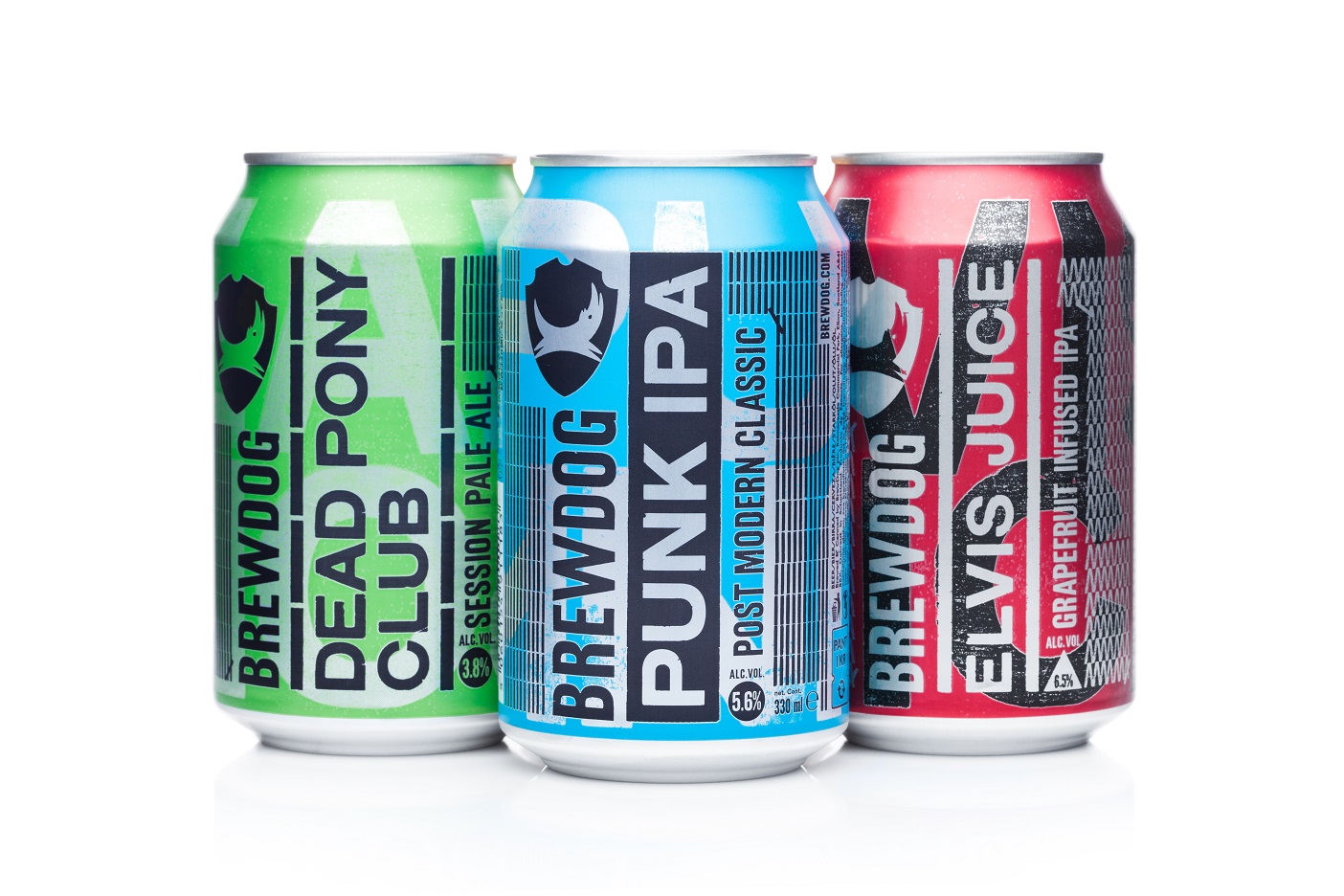BrewDog is running its latest round of Equity for Punks, called Equity for Punks Tomorrow.
The Scottish brewer, founded by James Watt and Martin Dickie in April 2007, has confirmed that this will be the last round of funding.
As of early February 2021, it had raised £16m of their £20m target with 50 days to go. [updated]
Anything raised beyond the initial goal will support sustainable ideas and concepts around the world.
Investors are promised benefits like beer on their birthday, sustainably sourced T-shirts and accessories and invitations to exclusive events, lifetime discounts in BrewDog bars or their own tree planted in the BrewDog forest.
Larger investments will grant you benefits like special edition drinks, free meals and notebooks.
The minimum investment is two shares at £25.15 apiece.
Nicola Horton, formerly a corporate finance partner at Crowe Clark Whitehill, who has advised BrewDog on the fundraising, explains to GrowthBusiness the innovative concept, why the company has chosen this route and whether other companies could follow.
Why have BrewDog chosen this method of fundraising?
“It is because, as a private company, what are the alternatives? Go to venture capitalists where you are going to have to give up a significant portion of your business or look at something like an AIM float, and while they’re publicly said an AIM float is not out of the question in a few years’ time, they are not ready for that yet.
“Also, given the associated costs of raising this sort of money, a couple of million pounds on AIM, it is far more cost-effective to follow this route.”
Could you walk me through how the process works?
“It’s a financial promotion, which has to be approved by a FCA-regulated entity, but then it is put up on the company’s website, and also via online trading business ComputerShare.
“The company itself takes charge of the marketing, and, over its campaigns, BrewDog have managed to get a lot of press. Companies have to let potentially interested people know that the offer is available, and if they log on, read the document, and like what they see, they can apply to purchase shares.
“Where it is different from other public offerings is this sort of thing is normally done through independent financial advisers or brokers. With BrewDog’s, it is very much the company sourcing the investment itself, with the assistance of professional advisers who check that the documentation is all okay.”
When it comes to these investors, are they grouped into one, or is it each investor taking a share?
“Each investor is applying on their own behalf.”
When investors want to sell their shares, how easy are they dispose of?
“That’s the drawback at the moment. There is no market for these shares currently. BrewDog holds a trading day for those who wish to sell their shares once annually, when there is not a share offering live. There is no guarantee that shares will be sold so investors should expect to hold on to them long-term. The intention will be, in due course, to facilitate that market between shares. The company have talked about potentially listing on AIM in the future, but for now they are a hold [investment].”
The model sounds very similar to other crowdfunding models that are currently on the market.
“It is, but with a regulated document and using a familiar point-of-access like ComputerShare, so it’s not just crowdsourcing via community or via the internet with an unregulated document which people have gotten into trouble with in the past. This offer has gone through the appropriate procedures and investor protection will be there.”
Is this a fundraising option that other companies should consider?
“It is definitely another route that companies could consider in terms of raising money, but what they have to consider is that they have to actively market it. There is no point putting together a document and sticking it on your website and then just thinking, ‘if you build it they will come’.
“You have to let people know that this opportunity to invest is out there – that is where BrewDog have been really good. They have received an awful lot of press coverage because they are good are marketing and PR, but that is really the key thing, otherwise how would a reasonable investor know that this opportunity exists?”
How rare is this plan?
“It is quite unusual. Certainly, talking to ComputerShare, they had only done two or three similar things in the past whereby the application is all via the internet for an unlisted company with a retail share offering. It is quite unusual, but it doesn’t mean other companies shouldn’t consider doing it.
“I would say it is a quite cost-effective way of raising money and that is the main thing that people are concerned about. But it has to be a proposition that a large mass of people could be interested in or could speak to a specialist community.
“In this case, it is for a craft brewery so there is a natural constituency of people who are interested in real ale or craft ale – it needs to be something that speaks to people and speaks to their passion. It’s not just a financial investment; it needs to offer more than that.
“And that’s the other thing with the BrewDog offer: it doesn’t just offer shares in the company. It says ‘get discounts on our beers’, ‘get a life-time discount in our bars’, ‘be part of our company and come along to our AGM’, ‘tell us what beers you like’ – it’s all about becoming a member of a club or a society, as well as making a financial investment.”
Has there been much interest from other companies seeking to follow the mode?
“On the back of the previous round, I had quite a few people contact me about doing something similar.”
Read more
25 of the most exciting fast growing technology companies in the UK






